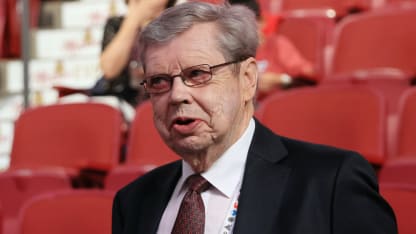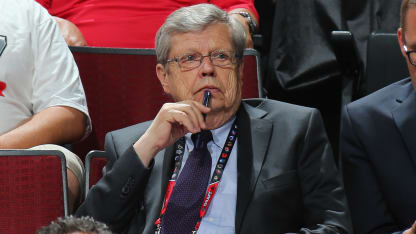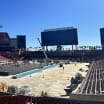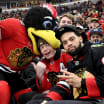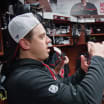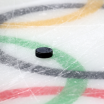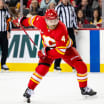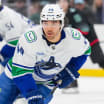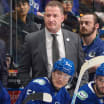In NHL.com's Q&A feature called "Sitting Down with …" we talk to key figures in the game, gaining insight into their lives on and off the ice. Today, we feature Goran Stubb, senior adviser of NHL European Scouting services.
Goran Stubb not only played a huge role to help resuscitate hockey in Finland, he provided European hockey and its brightest stars unmatched exposure for more than four decades as the NHL Director of European Scouting.
The 88-year-old scouting architect, who maintained a European scouting branch for NHL Central Scouting since 1983, announced his retirement from that post in July after 40 years of service to NHL member clubs. Jukka-Pekka Vuorinen was handed the reigns as director of European Scouting and Stubb has assumed the role as senior adviser.
"When you've been involved in scouting for NHL teams 40 seasons and you're my age, it's definitely time to step down," Stubb told NHL.com. "I'm proud of the fact the European scouting community has grown from 2-5 scouts to over 130 part-time or full-time European scouts working for NHL teams, mainly in Sweden, Finland, Czechia and some in Russia.
"It's also nice to see that, today, close to 30 percent of the NHL players are raised in Europe."
When it comes to builders of hockey across the pond, few had the influence of Stubb. He was inducted into Hockey Hall of Fame Finland in the builder category as part of the Class of 1991 and the IIHF Hall of Fame, also as a builder, in 2000.
"I've known Goran since I was a boy because my dad (Jim Gregory) struck a relationship with him and came up with a solution to hire Goran's group exclusively in Europe to mimic as much of Central Scouting over in Europe, as here," NHL Central Scouting's David Gregory said. "It was an amazing success story in that it was sort of experimental but look at how many years its lasted. Goran is a man who adapted so well to change as hockey changed and is a smart hockey man with a great sense of humor. He's very good to people and just wanted what was best for the game.
"I got to meet his family when we knew he was retiring and heard the stories. We learned so much from him, but he almost made you think he was learning from you. He's so humble that way. A great human being."
Stubb in 1961 kept afloat the hockey program in Helinski IFK when no one else wanted to do it. He was named Finnish Ice Hockey Association chief executive officer in 1975 and managing director in 1976 before Jim Gregory, then the director of NHL Central Scouting, inquired about possibly building a European central scouting system in 1983.
"Jim understood that Europe was a good future market, as he recruited defenseman Borje Salming and forward Inge Hammarstrom (in 1973) when he was general manager of the Toronto Maple Leafs," Stubb said. "A friend of mine, Esko Paltanen, who for many years held a strong position in Finnish hockey, helped introduce and arrange a meeting with Jim in 1983, and the rest is history."
